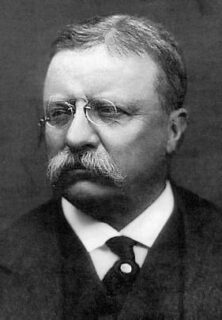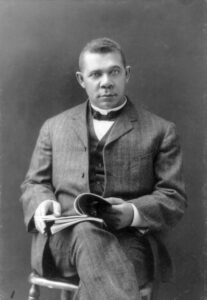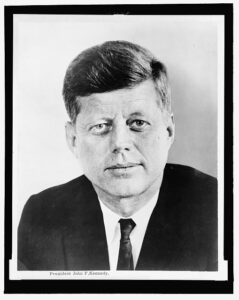
Teddy Roosevelt Discusses Trust-busting
Vice-President Theodore Roosevelt became President after the assassination of President McKinley in September, 1901. Hence his first annual message to Congress, on December 6, 1901, began with comments on this assassination, the third since 1865 to take the life of an elected president, as he ominously noted.
But after condemning the action and political ideology of the anarchist who shot McKinley, Roosevelt proceeded to address a concern that would form a large part of his agenda as President: how to put restraints on the growing power of business trusts. Roosevelt cautioned against rashly enacting anti-business legislation:
Many of those who have made it their vocation to denounce the great industrial combinations . . . appeal especially to hatred and fear. These are precisely the two emotions, particularly when combined with ignorance, which unfit men for the exercise of cool and steady judgment. In facing new industrial conditions, the whole history of the world shows that legislation will generally be both unwise and ineffective unless undertaken after calm inquiry and with sober self-restraint.
He proposed to use existing law, particularly the 1887 Interstate Commerce Act, to limit combinations of business that were unfair to consumers:
Corporations engaged in interstate commerce should be regulated if they are found to exercise a license working to the public injury. It should be as much the aim of those who seek for social betterment to rid the business world of crimes of cunning as to rid the entire body politic of crimes of violence. Great corporations exist only because they are created and safeguarded by our institutions; and it is therefore our right and our duty to see that they work in harmony with these institutions.
First of all, Roosevelt said, “Government should have the right to inspect and examine the workings of the great corporations engaged in interstate business;” after gathering the facts, government could then consider what “further remedies are needed in the way of governmental regulation, or taxation.”
In the coming months, Roosevelt would act more aggressively against business trusts than his State of the Union Address might have suggested. In February 1902 Roosevelt’s Attorney General brought suit under the Sherman Anti-Trust Act of 1890 against J. P. Morgan’s railroad company, Northern Securities.



